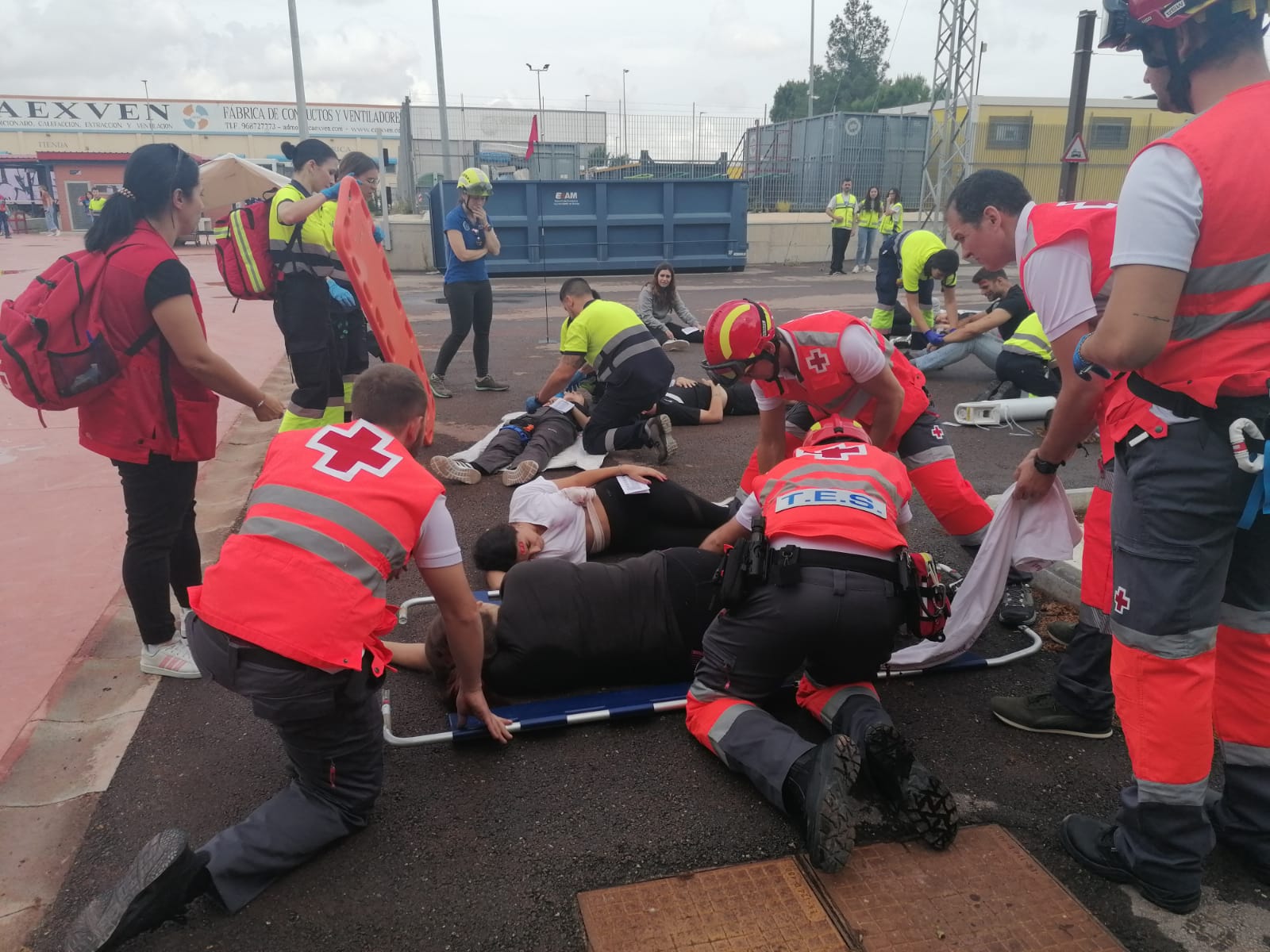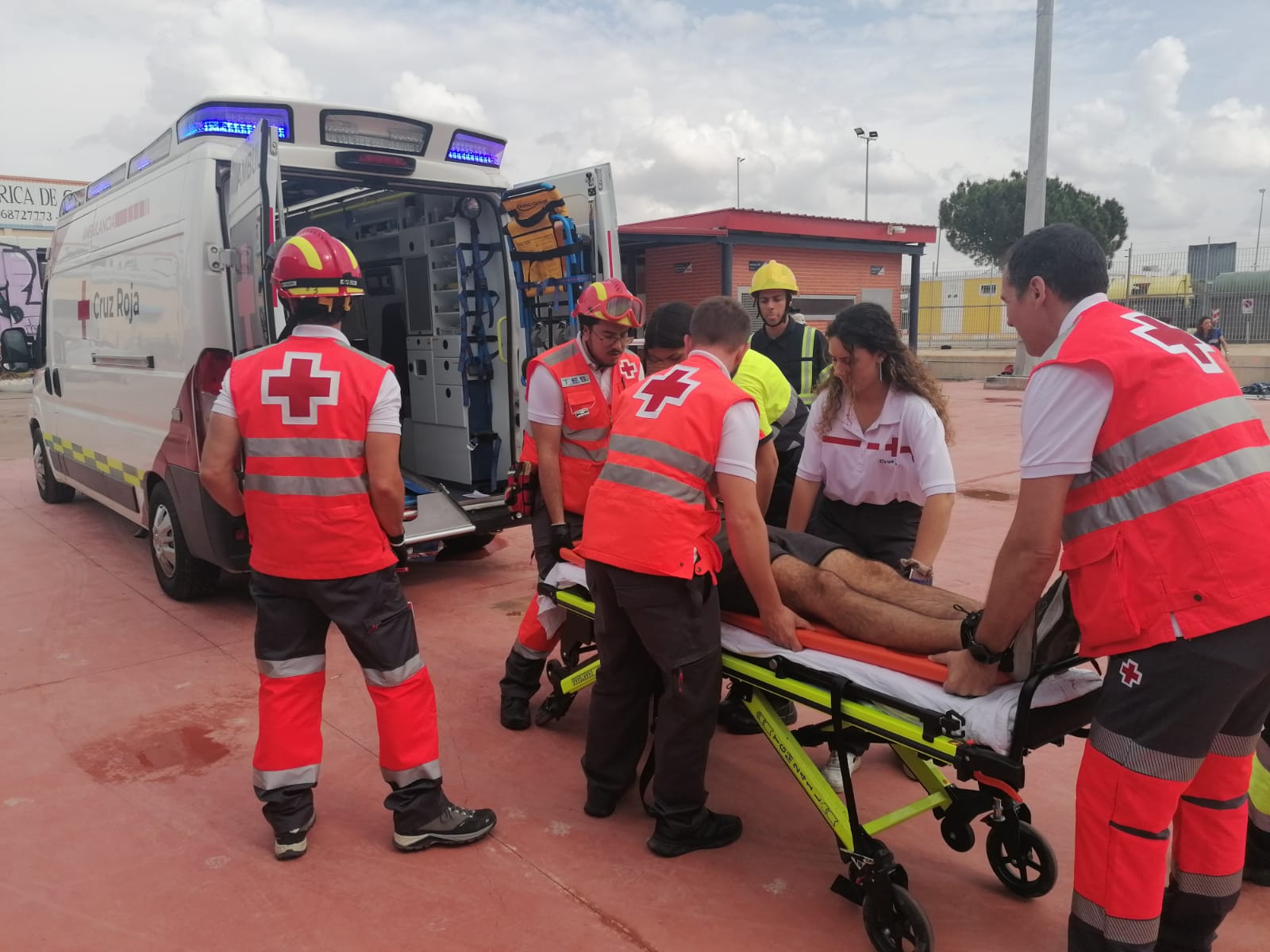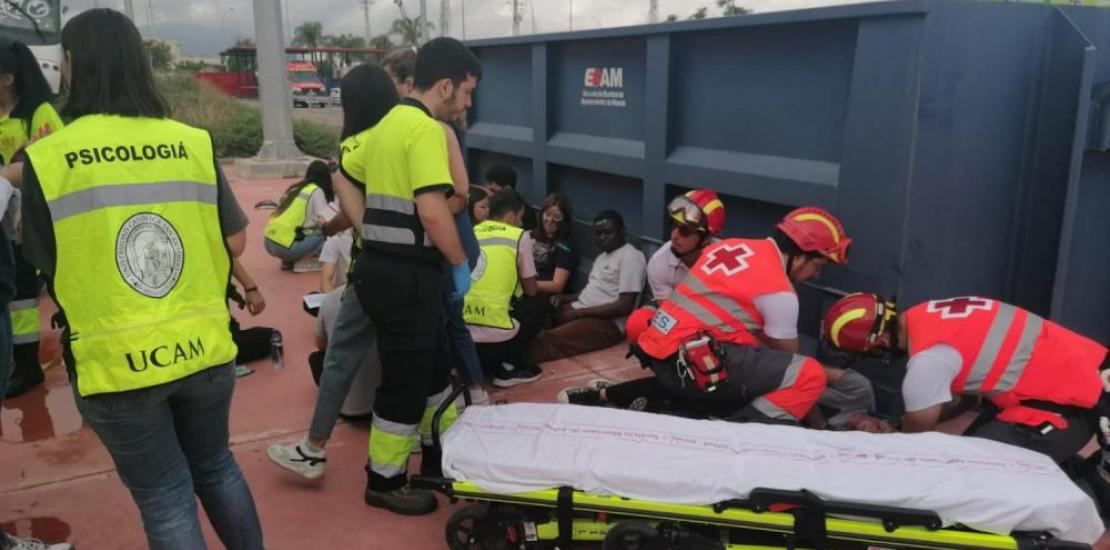UCAM conducts mass casualty simulation at the Firefighters’ School in Murcia
The students of the Master's Degree in Emergencies and Special Care and of the Master's Degree in General Health Psychology conduct a multi-victim building-collapse simulation
The Faculty of Nursing at the Universidad Católica de Murcia, through its Master’s Degree in Emergencies and Special Care, organised a mass-casualty simulation, due to the collapse of a building, as the final practice of this postgraduate course. The test took place at the Firefighters’ School of the City Council of Murcia (EBAM in Spanish), together with firefighters from the city and the Consortium, 061 personnel, volunteers from the Red Cross, students from the Bachelor's Degree in Nursing and the Master's Degree in General Health Psychology of UCAM, students of the San Nicolás Training Centre and teachers of different degrees.

Vanessa Arizo, director of the Master's Degree in Emergencies and Special Care, stressed that ‘during the Master's course, we work on different situations, such as radiation catastrophes or building collapses, in which the care capacities available at the time are overloaded. The aim is to provide the most realistic scenario possible for our students’.
During the test, students from both master's degrees put their knowledge into practice in a simulated environment, performing triage, cardiopulmonary resuscitation (CPR), immobilisation of patients and psychological support for victims and their families. In addition, they have practiced the management and working operation in an ambulance or field hospital during an extreme crisis situation.
The roles of patients, played by students from the Bachelor’s Degree in Nursing and the San Nicolás Training Centre, simulated different pathologies, such as abrasions, broken bones or anxiety and panic attacks, among many other common clinical conditions in the pre-hospital setting during disasters.
The development of this type of simulation is of great importance both for the students and for the different participating organisations. Paloma Echeverría, dean of the Faculty of Nursing, after thanking all the people and institutions which have been involved in this simulation, stressed that, for the students ‘it is a very important part of their training so as to further train them. Health workers always have to work in collaboration with others’.
Once it was over, a meeting was held between the different institutions in order to analyse the simulation and find possible improvements to solve emergency situations in the Region of Murcia as quickly as possible.





